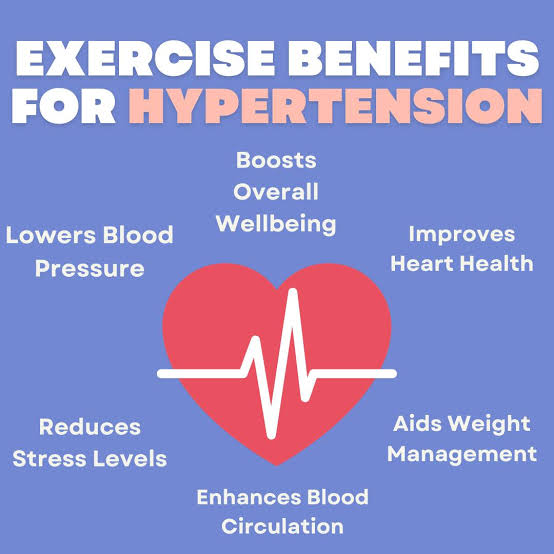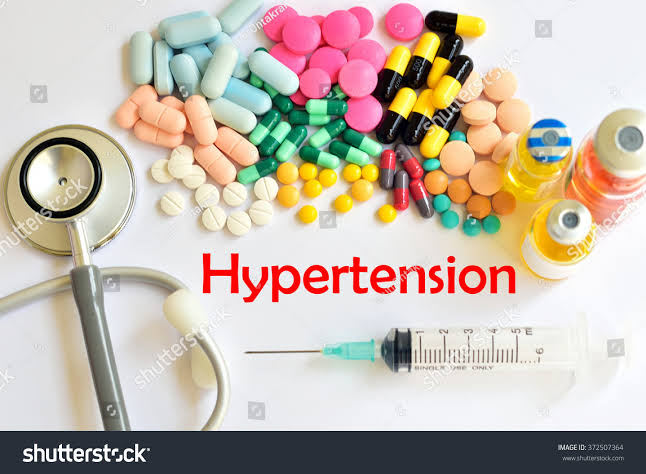Learn why Parental Counselling is essential in today’s fast-paced world. Explore its benefits, practical techniques, and expert insights to become a more mindful and effective parent.
Introduction
Adolescents need proactive, positive and participatory support from their parents.
Most of the parents do not have adequate skills to understand and guide diversified adolescent related issues either due to the generation gap or differences in cultural and social norms Mary adolescents are hesitant to share their issues with their parents due to fear.
They think parents may feel sad or would take it very seriously or things may get out of control Closeness between parent and adolescent is deeper in our society.
However, this closeness card grows into attachment and the misery that accompanies attachment can create obstacle for both parents and adolescents. Counsellors have to understand these barriers and provide skills to all parents to come out from these situations.
Parenting an adolescent is a rollercoaster of emotions, challenges, and learning curves. As children transition into their teenage years, their emotional, cognitive, and social development often leads to sudden behavioral changes, emotional outbursts, and strained parent-child communication.
In this turbulent phase, many parents find themselves overwhelmed and unsure of how to respond effectively.
This is where Parental Counselling becomes essential. It offers a structured, empathetic, and professional space where parents learn how to adapt, support, and guide their adolescent children through a phase marked by identity formation, rebellion, and emotional vulnerability.
In this article, we will explore the importance of Parental Counselling in adolescent parenting, its benefits, techniques, real-life applications, expert insights, and answer the most frequently asked questions.

Parents need to understand their adolescents
Listen and reflect-Many a times when adolescents share their problems with parents, they feel obliged to impart words of wisdom, instead of being quick to share, make sure you are listening and really internalizing what they’re saying.
In order to ensure this, ask questions such as: “So what I hear you’re saying is…”
Never judge-The adolescents have very good receptivity for knowing if parents are looking down upon and judging them.
To fight against this the parents should remind themselves, that their support should not be idealistic or irrational.
They should understand that it is healthy for adolescents to go through emotional and mental maturity along with physical
Don’t over identify – There is a danger of trying to match adolescents experience with their learning in order to gain credibility. This is a common mistake as it takes the parent away from the counselling process.
Don’t feel like you have to compulsorily share n similar experience to help them. If you do happen to have one, avoid the temptation of telling the whole story.
For instance, if you’ve struggled with an eating disorder, don’t feel like you have to retell the whole story. Rather, say something like, “I might know what you’re feeling like because I’ve been through a similar situation in life.” This opens the door if they want to hear more, but if they don’t ask, don’t keep-ongoing
Differentiating between danger and drama-When you have adolescents, especially young adolescents, it is very important to know the difference between real danger and drama. Thus, until you know the difference always assume real, plausible danger.
Sometimes it is better to keep it low when the adolescents are sharing their problem. Sometimes you may also not be equipped to know the difference; in such situations call a professional that is trustworthy and can give you discernment advice.
Remember that adolescents are characterized by black and white thinking (Extreme thinking)-When problems occur, adolescents may go to extreme thinking and automatically assume that this is the worst problem ever.
How do we help black and white thinking? Ask questions like this: “Do you always think it will always be this way?” “Can you think of a time when it isn’t this bad?” “Is it so bad?” In asking these questions, you are trying to help the adolescent move to the middle.
“What would you like to have happen?” “What would you like to see different?”
-These are magical questions in the counselling world. The second point is “Can you tell me about a time lately when the problem was less of a problem? All of these questions come out of a field of grief counselling. It reminds people that change is reachable and possible. It reduces the intensity of black and white thinking.
Role of counsellors in parental counselling in Parental Counselling
Counsellors have to encourage the adolescent parents to motivate adolescents for healthy food and diet.
Parents should always motivate their adolescents to get involved in regular physical activity. For instance, ensure that the adolescents walk ford on 2 kilometres with them regularly.
Parents should also plan proper sleep time for their adolescents and avoid late hours of sleeping
Try to reduce other family conflicts as much as possible and ensure that the adolescent avoids alcohol and other drugs. Using these to try and lessen sadness or pain worsen the problems.
Accept that there will be good and bad days. Acknowledge adolescent’s fear-don’t dismiss or ignore it. it’s important for adolescents to feel that you believe they con overcome their fears. They also need to know that you’ll be there to support them.
Let the adolescent know that anxiety is normal. Tell your adolescent about your own worries as an adolescent and remind him/her that lots of other young people feel anxious too. Gently encourage adolescent to do the things he/she is anxious about But don’t push him/her to face situations/he doesn’t want to face.
Consider setting him/her small goals in relation to things that make him anxious. Provide plenty of support and encouragement. For example, adolescent might be anxious about performing in front of others. As a first step, you could suggest that the adolescent practice his/her lines in front of the family, or work as a stagehand for the school play
Support your child in facing his/her fears. Acknowledge all the steps that he/she takes, no matter how small those steps are. Avoid labelling adolescent as shy or ‘anxious’ If the adolescent avoids a situation because of anxiety, don’t make a fuss. Let him/her know that you believe he/she will be able to manage anxieties in future.

Understand threshold level of stress
Stress helps you to deal with life’s challenges, to give your best performance and to overcome a tough situation with focus.
The body’s stress response is important and necessary. However, when too much stress builds up, one may encounter many physical and emotional health problems. If the individual doesn’t deal with stress, the health problem can stay longer and worsen over the course of life
Adolescents’ stress is an important, yet often overlooked, health issue. We know that the early years of adolescence are marked by rapid changes. Most adolescents face stress due to puberty, changing relationships with peers, new demands of school, safety issuers in their neighbourhoods and responsibilities of their families.
The way in which adolescents cope with this stress can have significant impact on their future personal growth
The key to help adolescents is to stay ALERT to their stress:
Acknowledge that adolescents stress is often different from adult stress
Listen to the adolescents and be aware of how they respond to your level of involvement. Sometimes, just listening is enough.
Encourage adolescents to express how they’re feeling when they are stressed.
Recognize that adolescents may have different experiences from each other.
Time, the parents should understand that there will be one moment when adolescents will experience things differently than them.

Everyone has to learn to say “No.”
Try to sort out what is most important in your life.
Everyone should listen to the wisdom of their body.
Eat healthy, exercise and make sure you get enough sleep.
Always keep your sense of humor alive.
Laughter can do wonders for your stress.
What is Parental Counselling for Adolescents?
Parental counselling for adolescents is a specialized therapeutic support system designed to help parents understand teenage behavior, manage conflicts, build emotional bonds, and strengthen communication with their children.
Unlike generic parenting tips, parental counselling involves one-on-one or group sessions with trained professionals like child psychologists, adolescent therapists, or family counsellors. These sessions are focused on understanding teenage brain development, identifying red flags, and responding with evidence-based parenting strategies.
Why Parental Counselling Is Essential in Today’s Times

1. Teenage Years Are Emotionally Volatile
Adolescents undergo hormonal, emotional, and psychological shifts. Without proper understanding, parents may react emotionally, worsening conflicts. Counselling helps parents remain grounded, responsive, and empathetic.
2. Communication Gaps Are Widening
With the rise of smartphones, social media, and peer influence, many teens disconnect from their parents emotionally. Counselling equips parents with active listening and non-judgmental dialogue skills to reconnect with their adolescent child.
3. Parents Often Misinterpret Behavior
Teens may act withdrawn, aggressive, or rebellious—not out of disrespect, but due to confusion, anxiety, or peer pressure. Counselling helps parents decode behavior and respond constructively.
4. Academic and Career Pressure is Intense
Today’s teens deal with academic stress, future insecurity, and comparison culture. Parents often push too hard or expect too much. Counselling guides parents on how to support without pressuring.
5. Mental Health Issues Are Increasing
According to WHO, 1 in 7 adolescents globally suffers from mental health disorders. Parental counselling helps recognize signs of depression, anxiety, or low self-esteem and promotes timely interventions.
6. Changing Family Structures Add Complexity
Divorce, remarriage, nuclear families, or working parents can lead to emotional detachment. Counselling supports parents in navigating family transitions without emotional damage to the adolescent.
Key Techniques Used in Adolescent-Focused Parental Counselling
✔ Cognitive Behavioral Strategies (CBT)
Helps parents shift from reactive to reflective responses by identifying cognitive distortions and adopting healthy thinking patterns.
✔ Emotion Coaching
Teaches parents how to validate teen emotions and guide them through emotional storms calmly.
✔ Active Listening and Reflective Dialogue
Parents learn to listen without interrupting, reflect feelings, and promote safe conversations.
✔ Setting Boundaries with Empathy
Techniques to discipline without hostility—using firm but fair boundary-setting practices.
✔ Stress Management and Self-Regulation
Parents are taught how to regulate their own emotions to avoid triggering emotional reactions in teens.
✔ Collaborative Problem Solving
Encourages involving adolescents in family decisions to build trust, responsibility, and respect.

Steps for parents to deal with their adolescents
Praise
Parents should praise their adolescents always for their performance and success. Appreciate their efforts for any learning and accept as it is. This will increase the frequency of sharing between parents and adolescent.
Reflection
Parents should understand the reflection and activities of adolescent. Once the reasons are understood they should try to confirm their assumption through the friendly discussion.
Limitation
Parents should always remember not to limit themselves, rather follow the instructions. Offer them alternatives so that the adolescents feel empowered to take their decisions after assessing the pros and cons carefully.
Behavioural description
Adolescents have a very complex behaviour, it is parent’s responsibility to provide them simple, elear and workable options. So that the adolescents feel comforted in sharing their issues in future too,
Enjoyment
Parents should spend relaxing time with their adolescents and take interest their subjects such as cartons, favourite books, birthdays, school events and personal achievements
Real-Life Scenarios Where Parental Counselling Helps
- A father struggling to understand his daughter’s sudden emotional withdrawal.
- A mother frustrated by her son’s excessive screen time and poor grades.
- Divorced parents unable to co-parent effectively during their child’s adolescence.
- Parents whose teen is exhibiting signs of social anxiety or low self-worth.
- A family dealing with peer-pressure-induced behavioral changes.
Parental counselling transforms these challenges into learning and growth opportunities through empathy, insight, and action plans.
Key issues where parents require help from counsellors
To understand all the aspects of growth and development among adolescents
To understand psychological and emotional changes during the adolescence.
Early recognition of adolescent’s problems and challenges.
Skills to teach adolescents about sexual development, sexual behaviour and precaution.
Skills for listening and discussing adolescent’s issues patiently and sportingly.
Clarifying their doubts and giving them alternatives.
Expert Advice for Parents Raising Teens
1. Avoid Constant Criticism
Teens are self-conscious and easily wounded by judgment. Focus on positive reinforcement and support.
2. Create a Safe Space at Home
Allow teens to express themselves freely without fear of punishment or ridicule.
3. Respect Their Privacy
While guidance is crucial, respecting their personal space fosters independence and mutual respect.
4. Be Consistent with Rules
Clear, consistent boundaries help teenagers feel secure, even if they test the limits.
5. Model the Behavior You Expect
Teens mimic more than they listen. Show patience, honesty, and emotional regulation in your own actions.
Benefits of Parental Counselling for Adolescent Parenting
| Benefit | Impact |
| Enhanced Communication | Builds trust and reduces misunderstandings |
| Early Detection of Issues | Prevents escalation of mental or behavioral problems |
| Better Emotional Connection | Strengthens the parent-teen bond |
| Reduced Conflict | Helps resolve power struggles and arguments |
| Empowered Parenting | Increases confidence and competence in decision-making |
| Resilient Teenagers | Leads to emotionally strong and self-aware adolescents |
How to Start Parental Counselling for Teens
- Find a Qualified Adolescent Counsellor
Look for certifications in child/adolescent psychology and experience with family dynamics. - Be Transparent With Your Teen
Explain the purpose of counselling positively—it’s about learning, not punishment. - Schedule Regular Sessions
Consistency ensures deeper transformation and habit-building. - Set Realistic Goals
Focus on progress, not perfection. Set short-term and long-term objectives with your counsellor.
Tips for Choosing the Right Counsellor
- Check qualifications (MA Clinical Psychology, Family Therapy Certification)
- Ask about experience with adolescents
- Ensure confidentiality, non-judgmental approach, and cultural sensitivity
- Get references from trusted pediatricians, schools, or parent groups
- Consider tele-counselling if location is a barrier
Parents’ Role
Parents’ roles can be organized into five dimensions, each of which has specific influences on adolescent health outcomes:
Connection-love
Behavioral control-limit
Respect for individuality-respect
Modelling of appropriate behavior-model
Provision and protection-provide
Connection:
A positive and stable bond between parents and adolescents is an important protective factor for adolescent health and development.
Behavior Control:
Behavior Control, otherwise referred to as regulation, monitoring, structure, limit-setting. encompasses parents’ actions aimed at shaping or restricting adolescents’ behavior. These actions supervise and monitor adolescents’ activities, establishing behavioral rules and consequences for misbehavior. Thus conveying clear expectations for behavior.
Respect for individuality:
Respect for individuality involves allowing the adolescents to develop a healthy sense of self, apart from his or parents.
These are indicative parental behaviors to encourage or discourage in order to promote adolescent health and development.
Often unfairly compares me to someone else (i.g to my brother or sister, to her/himself):
Often ignores me
fe.g., walking away from me, not paying attention to me)
| Behavior to encourage Connection Mother/Father: | Behavior to discourage Psychological control Mother Father: |
| Supports and encourages me | Ridicules me or puts me down (eg saying tam stupid, useless, etc) |
| Gives me attention and listens to me | Embarrasses me in public (eg, in front at my friends) |
| Shows the affection | Doesn’t respect me as a person (e.g not letting me talk, favoring others over me, etc.) |
| Praises me | Violates my privacy (eg entering my room, going through my things, etc |
| Comforts me | Tries to make me foul guilty for something I’ve done or something s/he thinks I should do, |
| Respects my sense of freedom | Expects too much of me (c.g., to do better in school, to be a better person, etc.), |
| Understands me | Often unfairly compares me to someone else (i.g to my brother or sister, to her/himself): |
| Trusts me | Often ignores me fe.g., walking away from me, not paying attention to me) |
| Gives me, advice and guidance | |
| Provides for my necessities | |
| Gives me money | |
| Buys me things | |
| Has open communication with me | |
| Spends time with me | |
| Supports me in my school work | |
| Behavioral control Mother/Father tries to know/knows | |
| who my friends are | |
| where I go at night | |
| how I spend my money | |
| what I do with my free time | |
| Where I am most afternoons after school |
Modelling of appropriate behavior:
As individuals with enormous influence in all aspects of development, parents establish these norms within the household by their own behavior and attitudes as well as interpreting the norms of the larger society.
Provision and protection
Parents play an important role in assisting adolescents to access other resources in the community, outside the family unit.
Most Relevant FAQs on Parental Counselling for Adolescents
1. What age group is considered adolescent in counselling?
Typically, 10–19 years is considered adolescence, with counselling approaches tailored by age.
2. How does parental counselling help with teen rebellion?
It helps parents understand the psychological basis of rebellion and adopt calm, boundary-setting techniques.
3. Is it necessary even if my teen seems fine?
Yes. Counselling also works preventively to build better emotional resilience in teens.
4. Can counselling help with social media addiction?
Absolutely. It offers strategies to manage screen time and helps parents set balanced digital boundaries.
5. What’s the difference between adolescent counselling and parental counselling?
Adolescent counselling focuses on the teen, while parental counselling equips parents with tools to better support their teens.
6. How long does it take to see results?
Usually within 6–8 sessions, parents begin noticing positive shifts in behavior and communication.
7. Can both parents attend counselling together?
Yes, joint participation promotes unified parenting and clearer family dynamics.
8. Is it effective in blended families or co-parenting situations?
Very much so. It helps manage differing parenting styles and ensures emotional consistency for the child.
9. What if my teen refuses to talk or cooperate?
Parental counselling focuses on changing parental behavior, which in turn influences the teen indirectly.
10. Can this replace adolescent therapy?
Not necessarily. Parental counselling complements, but does not replace, individual therapy for teens if needed.
11. Is it covered under mental health insurance?
In many cases, yes—especially if it’s part of family therapy or mental health packages.
12. Do I need to attend weekly sessions?
Weekly sessions are ideal initially; frequency may reduce as progress is made.
13. How confidential are these sessions?
Sessions are highly confidential, promoting honest discussion without judgment.
14. Is parental counselling available online?
Yes, virtual counselling is widely accessible, flexible, and equally effective.
15. What if only one parent is willing to attend?
Even one proactive parent can bring significant change to the family dynamic.
Conclusion
Adolescence is not just a phase for teens—it’s a challenge for parents too. In a world full of distractions, mental health risks, peer pressure, and identity struggles, parenting teenagers requires more than love; it demands empathy, skill, and constant learning.
Parental counselling provides a lifeline for parents navigating this complex journey. It empowers you to understand your teen’s world, build stronger connections, resolve conflicts calmly, and raise resilient, emotionally healthy young adults.
If you’ve ever felt confused, frustrated, or helpless in your parenting—now is the time to seek support. Because when parents grow, teens flourish.










